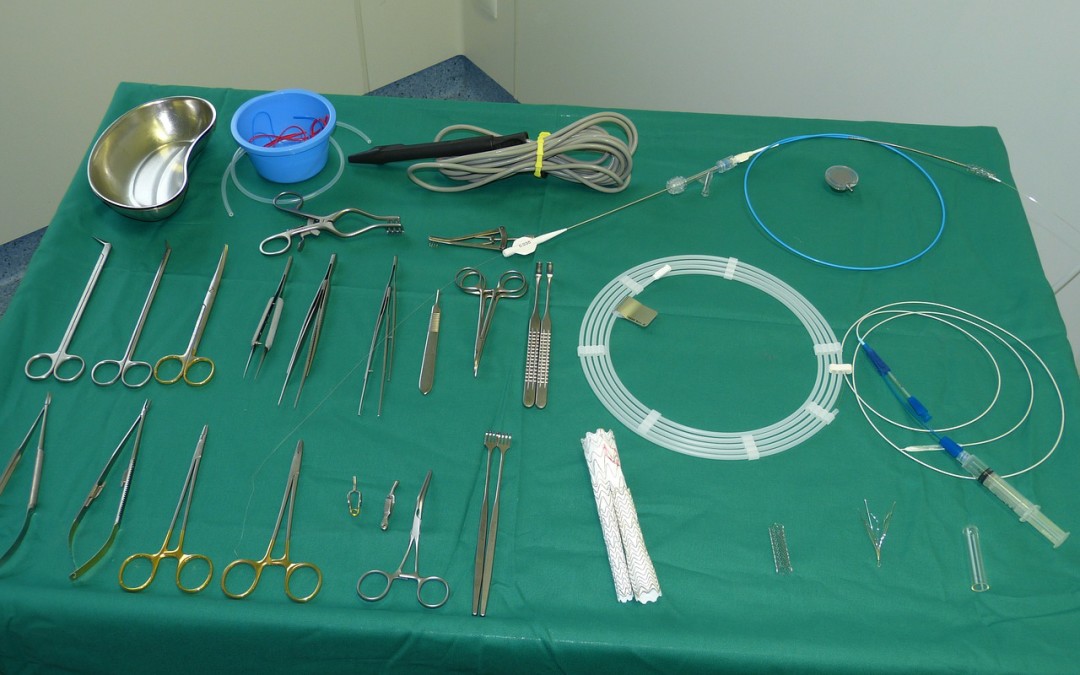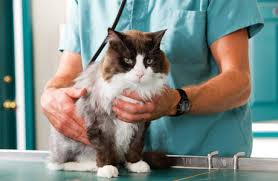
CDC and FDA Urge Review of Disinfection Procedures
Prompted by concerns about manufacturer, contractor and vendor processes, the CDC and FDA have urged medical providers to review their procedures and training for the cleaning, disinfection and sterilization of reusable medical devices.
The warning appeared to focus on physicians, but the advisory could be construed to apply to veterinarians and other health professionals as well.
The full text can be found here.

Ten Most Common Dog And Cat Surgeries
Veterinary Pet Insurance, a national pet insurance company, recently posted the ten most commonly performed surgeries in dogs and cats.
Looking broadly at the chart pasted below, skin masses, dental extractions, and abdominal surgeries topped the list.
In looking at any pet insurance policy you might have, determine whether your policy reimburses you based on a percentage of the cost of the procedure, or based on the insurer’s reimbursement schedule.
| Top 10 Canine Conditions | Average Vet Cost |
Top 10 Feline Conditions | Average Vet Cost |
||||
| 1. Benign Skin Mass | $552 | 1. Tooth Extraction | $529 | ||||
| 2. Tooth Extraction | $527 | 2. Skin Abscess, Inflammation, or Pressure Ulcer |
$270 | ||||
| 3. Skin Abscess, Inflammation, or Pressure Ulcer |
$226 | 3. Benign Skin Mass | $526 | ||||
| 4. Cruciate (ACL) Rupture | $3118 | 4. Cancer of the Small Intestine | $1653 | ||||
| 5. Malignant Skin Mass | $1915 |
5. Cancer of the Liver |
$1197 | ||||
| 6. Cancer of the Spleen | $2404 | 6. Malignant Skin Mass | $1656 | ||||
| 7. Cancer of the Eyelid | $531 | 7. Bladder Stones | $1631 | ||||
| 8. Cancer of the Liver | $1662 | 8. Cancer of the Peritoneum | $826 | ||||
| 9. Bladder Stones | $1589 | 9. Cancer of the Spleen | $1750 | ||||
|
10. Corneal Ulcer |
$802 | 10. Cancer of the Nasal Cavity | $2862 | ||||
See Veterinary Pet Insurance, a Nationwide Insurance Company, at Pet Insurance.com
What are probiotics?
Probiotics are supplements composed mostly of bacteria that recently have gained considerable attention in veterinary medicine. Although many types of harmful bacteria exist, some species of bacteria, in the correct place in the digestive system, in the right amount, potentially can boost health and intestinal functioning according to the findings of some veterinarians and animal owners.
As supplements, probiotics are not regulated as tightly as pharmaceuticals. Talk with your veterinarian to determine if probiotics might be right for your animal.
One brand is found conveniently on Amazon, here:
Allegations of veterinary malpractice. Mediation Next?
An Orlando man recently filed a lawsuit against his veterinarian. Following extractions of several teeth, the Orlando man’s dog developed severe infections due a type of bacteria that was resistant to treatment with several different antibiotics. (not the actual dog pictured).
The pet owner accused his veterinarian of malpractice and fraud and sought monetary damages for compensation and punishment.
It is difficult to predict in advance how the case ultimately will be resolved. Both the dog owner and the veterinarian presumably would prefer to shape the ultimate resolution of the case. Mediation is one method that would allow them to do so.
Would mediation help you?

Sound Advice? Veterinary Recommendations Via The Internet
Can a licensed veterinarian provided medical advice to a pet owner over the telephone without having performed a physical examination on the pet? In Texas in March, 2015, in the case of Hines v. Alldredge, the Fifth Circuit U.S. Court of Appeals said: “no.” Dr. Ronald Hines worked as a veterinarian in Texas. After his formal retirement from practice in 2002, Dr. Hines created a website. His posting began with general information, but soon he provided veterinary advice to specific owners. He charged for his services. The Texas Board of Veterinary Medical Examiners imposed administrative discipline against Dr. Hines, including a fine and one year of probation (as to his veterinary license). The Board maintained that provision of veterinary advice without a physical examination and thus without a fully formed veterinarian-client patient relationship, violated Texas law. Dr. Hines brought suit in Federal Court. Dr. Hines challenged the reasonableness of the Texas Board’s position, and also asserted a freedom-of-speech defense. Dr. Hines asserted that his advice was protected by the First-Amendment of the Constitution. The Fifth Circuit Court found that the challenged laws were rationally related to a legitimate government interest, and found against Dr. Hines. The Texas decision is not on professionals in every state. However, the Hines case serves as an important reminder. Professionals should acquaint themselves with their own state licensing statutes. Licensing agencies hold administrative power over a licensed professional’s ability to continue working as trained.
